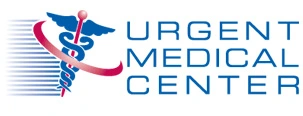Could Something Serious Be Causing Your Headaches?
We’ve all been there, having gone to bed in hopes of relief only to wake up and realize our pounding headache is still lingering around. Headaches are a part of life, at some point we all get hungry, dehydrated, or stare at a screen too long, and poof we have headache. If you are suddenly experiencing ongoing headaches it’s important to analyze any big changes in your life, including stress, medications, work environment, or even diet. There are so many things that can cause headaches, from something as innocent as an ill-fitting hat, to something more serious and potentially even life threatening. If you are bombarded by headaches on a regular basis, it can start to interfere with work, school, family, and even your social life. At any point you just want answers, a way to make the headaches stop. The first way to cease the throbbing is to figure out what is causing your headache, and what type of headache you are suffering from.
Common Headaches Causes
So many things can trigger a headache, and every now and then we are all going to feel a pounding in our heads. Here are some common causes of routine headaches:
- Hunger and dehydration
- Certain lighting—everyone is different, but for many bright flashing lights do the trick.
- Coffee—if you stop drinking coffee abruptly expect a headache for at least a few days.
- A lack of sleep
- Alcohol
- Stress
The Most Common Types of Headaches
Not all headaches throb to the same beat, in fact there are a number of different types of headaches; each one affects your brain in a unique way. Uncovering the types of headaches that plague you most often is key to uncovering a working solution.
Migraines
Migraines are some of the most painful types of headaches and can be truly debilitating. They occur on one side of the head, and result in a painful throb behind one eye. For some migraine headaches are unbearable, causing physical weakness, nausea, sensitivity to light and even vomiting. There are multiple migraine triggers, although emotional stress is a common factor (Learn More).
Tension Headaches
Tension headaches, also known as stress headaches, are very common, especially among young adults. They are often described as tightness or pressure that can occur all over the head—back, front, sides, wherever. Tension headaches are not typically debilitating and they can last anywhere from under one hour to a couple of days. Over the counter medications, such as Tylenol, can help dole the pain.
Cluster Headaches
Men are 4 times more likely to get cluster headaches as compared with women. These painful headaches can be rather sever, and occur on one side of the head. Also known as chronic headaches, they attack on and off throughout the day. Professional medical treatment is often necessary to keep these outbreaks manageable.
Medication Overuse
70% of Americans are prescribed a medication; therefore it’s only becoming more common for people to experience headaches due to medication overuse. These types of headaches occur all over the head. If you think medications might be the cause of your headaches, consult with your doctor immediately.
Sinus Headaches
Sinus headaches are directly linked to issues/blockages within your sinuses, and result in either a pounding behind one eye, or throughout the forehead. Those suffering from sinus headaches incur other symptoms as well, such as a stuffy nose. In order to clear up your sinuses, and headaches, consult with your doctor.
Serious Headache Warnings—When To Consult Your Doctor
There’s no need to contact your doctor every time you get a headache, although under certain circumstances it’s wise to get professional medical attention as soon as possible.
- When should I seek medical attention for my headache?
- If you experience a headaches that don’t go away, no matter what you do.
- If you are frequently taking high amounts of medication, Advil and other leading headache drugs are fine in moderation but when taken too much they can cause bigger issues over time.
- Headaches that change your perception, language skills, ability to walk, or debilitate any other neurological abilities could be a sign of a stroke or brain tumor.
- Headaches that continue to reoccur as a result of an injury to your head—such as a car accident.
Reoccurring headaches can occur for many reasons; thankfully seeking medical attention can bring about answers and relief. For instance, if it’s your blood sugar levels causing your headaches, only a doctor will be able to test for this, along with create a suitable treatment plan for you (Here). Headaches are a part of life but they shouldn’t continually interfere with your life, a trained medical professional can help.






